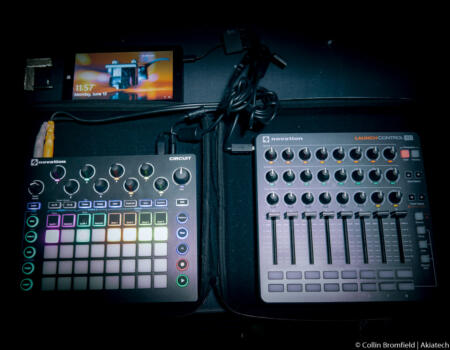Innovative Advancements: How AI is Transforming Modern Electronics
In today’s fast-paced world, Artificial Intelligence (AI) is more than just a buzzword; it is a transformative force that is revolutionizing various industries, including modern electronics. From enhancing consumer devices to bolstering industrial applications, AI is enabling smarter, more efficient, and highly interactive electronic gadgets. This article explores the latest advancements and the pivotal role AI is playing in shaping the future of modern electronics.
AI in Consumer Electronics
Consumers are increasingly expecting their electronic devices to be smarter and more intuitive. AI technologies such as machine learning, computer vision, and natural language processing are key to meeting these expectations.
1. Smart Home Devices
The integration of AI in smart home devices is making homes more connected and automated. These intelligent systems can learn user preferences and behaviors to offer personalized experiences.
- Smart Speakers – AI-powered smart speakers such as the Amazon Echo use natural language processing to understand and respond to voice commands.
- Smart Thermostats – Devices like the Google Nest Learning Thermostat analyze user habits to optimize home heating and cooling, leading to energy savings.
2. Smartphones and Wearables
AI is significantly enhancing the capabilities of smartphones and wearable devices. The latest models are equipped with advanced AI algorithms for better photography, health monitoring, and real-time language translation.
- Smart Cameras – Phones like the iPhone 15 Pro use AI to enhance image processing, resulting in clearer and more vibrant photos.
- Health Tracking – Wearables such as the Apple Watch Series 9 utilize AI to monitor heart rate, detect arrhythmias, and even predict potential health issues.
AI in Industrial Electronics
In the industrial sector, AI is driving innovations in automation, predictive maintenance, and process optimization. These advancements are crucial for improving productivity, reducing downtime, and enhancing quality control.
1. Predictive Maintenance
AI algorithms can analyze historical data to predict equipment failures before they occur. This proactive approach helps in reducing downtime and maintenance costs.
- Industrial Robots – Robots equipped with AI, such as those from FANUC, can perform complex tasks and self-diagnose to determine potential issues.
2. Quality Control
Computer vision powered by AI is revolutionizing quality control processes in manufacturing. These systems can detect defects that are invisible to the human eye, ensuring higher quality products.
- Inspection Systems – Solutions like the Cognex Vision Systems utilize AI to enhance accuracy and speed in identifying product defects.
Challenges and Future Prospects
While AI offers numerous advantages, its integration into modern electronics is not without challenges. Concerns regarding data privacy, security, and the ethical use of AI remain pertinent. However, ongoing advancements in AI research and development are continually addressing these issues, paving the way for more secure and ethical AI applications.
Looking ahead, the future of electronics seems promising with AI at its core. Innovations such as AI-driven edge computing, autonomous vehicles, and advanced robotics are expected to become mainstream, further transforming our interaction with electronic devices.
Conclusion
The transformative power of AI in modern electronics is undeniable. From enhancing everyday consumer devices to revolutionizing industrial applications, AI is driving significant advancements that improve efficiency, personalization, and user experience. As AI technology continues to evolve, we can anticipate even more innovative applications that will shape the future of modern electronics.
Discover more from Akiatech Solutions Blog
Subscribe to get the latest posts sent to your email.









